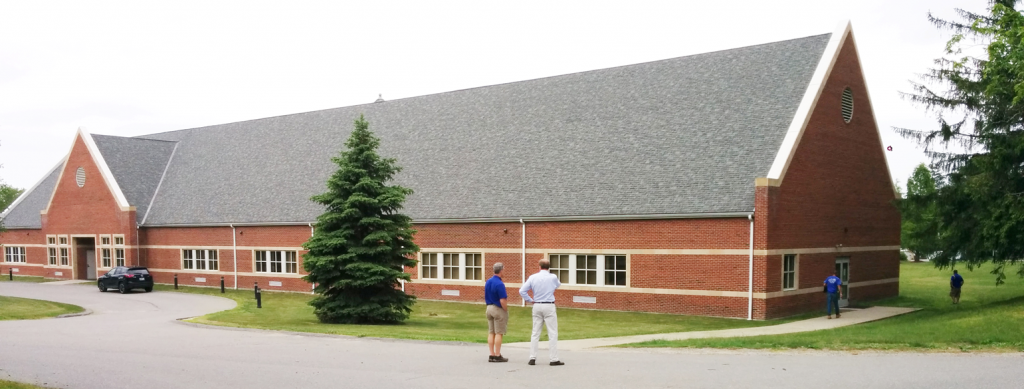 New England Clean Energy has started construction of a 115.8-kilowatt solar energy system at Perkins in Lancaster, Mass. Perkins is a human service agency for children, adolescents and senior citizens. We’re installing the system on the roof of the Perkins’ classroom building, and it should produce about 25 percent of the building’s electricity.
New England Clean Energy has started construction of a 115.8-kilowatt solar energy system at Perkins in Lancaster, Mass. Perkins is a human service agency for children, adolescents and senior citizens. We’re installing the system on the roof of the Perkins’ classroom building, and it should produce about 25 percent of the building’s electricity.
The financial benefit of the system is significant — electricity savings of more than $580,000 over 25 years (factoring in electric rate inflation). In addition, Perkins will benefit from a new revenue stream created by the sale of solar renewable energy certificates (SRECs).
If you’re a non-profit or small business owner and the concepts “reduced overhead” and “new income” caught your attention, check this out: An upfront capital investment is not necessary to go solar. Perkins financed the project through a 15-year power purchase agreement from Technology Credit Corporation, with a buyout option at the end of the fifth year.
Perkins Chief Executive Officer Michael Ames has this to say about going solar: “We are thrilled to be able to save money and lower our environmental impact by installing solar. We are incredibly grateful to New England Clean Energy and Technology Credit Corporation for partnering with us to make this possible.”
 In addition to the financial benefits, the solar system will have a positive impact on the environment. By producing more than 154,000 kilowatt-hours of emissions-free electricity per year, the system will prevent the release of 240,800 pounds of carbon dioxide from fossil-fueled electricity. That is equivalent to taking more than 22 cars off the road for a year, or the carbon absorption of more than 87 acres of trees.
In addition to the financial benefits, the solar system will have a positive impact on the environment. By producing more than 154,000 kilowatt-hours of emissions-free electricity per year, the system will prevent the release of 240,800 pounds of carbon dioxide from fossil-fueled electricity. That is equivalent to taking more than 22 cars off the road for a year, or the carbon absorption of more than 87 acres of trees.
Perkins Trustee Stan Starr says: “As a member of Perkins’ Board of Trustees, I’m pleased to have played an active role in helping to bring solar energy to our campus. This undertaking provides a substantial step in making our facility a more earth friendly site and also offers an opportunity for our students to work the solar enterprise into their curriculum.”
The system will have 354 SunPower 327-watt panels covering most of the 236-foot-long, south-facing roof of the building. The system also has SolarEdge inverters with optimizers under each panel, Unirac rail and EcoFasten mounting hardware.
While the occasional property owner worries how solar panels will look on their home or business, the Perkins project is a great example of how the panels can be aesthetically pleasing.
Jim Elkind, Clean Energy’s CEO, points out: “Perkins’ emphasis on innovation does not preclude high-quality aesthetics. This will be a beautiful system, with black-framed panels and black rail and mounting hardware helping the array blend into the building’s roof, as well as the surrounding campus and neighborhood. At the same time, installing solar will make a strong statement about the agency’s commitment to innovation, cost-effective operations, and environmental education.”
Watch this space for photos of the completed installation.

If you liked this article, you might also enjoy:
Why Solar and Non-Profits are Such a Good Combination





